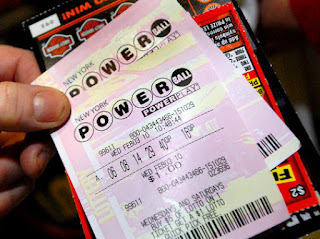I love when I see something brand new in a passage of Scripture that I've never noticed before.
Recently, while reading the final chapter of the Gospel of John, I saw an incredible parallel of the life of Peter playing out before me.
First, John does Peter a great honor by closing out his Gospel with this touching portrait of Jesus' tender heart towards the formerly-boisterous disciple in his hour of humiliation.
Peter decides to go fishing. A handful of other disciples go with him. They fish all night and catch nothing, much as they had done on the day that Jesus called Peter to become a follower three years earlier.
Jesus stands on the shore, but they don't realize it's him yet. He calls out and asks if they caught anything and when they say, "No", he tells them to throw their nets on the other side of the boat and they haul in a huge catch of fish - again, just as they had done on that day when Jesus called Peter to "Follow Me!"
That's when they realize it's Jesus. Peter then steps out of the boat. Just like he did that night in the storm when Jesus called him out on the waves and he sunk like a stone after looking away from Jesus.
When Peter gets to shore, Jesus already has fish, and bread, cooking on a fire. "Go and bring some of the fish you just caught," Jesus tells him. Much as Jesus did when he fed the multitudes saying, "bring your loaves and fishes to me" right before multiplying their small portions to feed not only the thousands around them, but with leftover to feed the rest of the disciples, too.
Once everyone else arrives from the boat and they sit around the fire, Jesus takes bread, and fish, and begins breaking them into pieces and passing them around to everyone. Just like he did that day when he fed the thousands, and just like he did that night in the upper room saying, "Take, eat, this is my body, broken for you."
Surely they noticed the repeating of these actions. Certainly, Peter did.
Around the fire, Jesus asks, "Do you Agape [Perfectly love] me, more than all the rest?", much as the girl around the fire asked Peter, "Weren't you with this Jesus of Nazareth?" that night when Peter betrayed him.
Peter is only able to answer, "I Phileo [Brotherly love] you."
Jesus says, "Feed my lambs", much in the same way as he had told Peter and the other disciples when they wanted to send the multitudes away, "No, you give them something to eat."
How could Peter feed all of Jesus' followers? He had only just pulled in a catch of 153 fish, which was a lot for his family, but not enough for all of those who were following Jesus. However, Peter certainly realized that the 3 loaves and two fish were more than enough for thousands that day, and his 153 fish would be more than enough for the hundreds of thousands who would soon gather around Jerusalem and beyond, because Jesus would make it enough, as He always did.
A second time Jesus asks, "Do you Agape me?" and Peter says, "I Phileo you, Lord" and Jesus again responds, "Feed my sheep."
The third question grieves Peter, because it pointed to his three denials of Christ that night, but here Jesus changes his question: "Do you Phileo me, Peter?" and then Peter says, "You know all things, Lord. You know that I love you like a brother."
"Then feed my sheep," Jesus says.
And then he adds, "Follow me," which is exactly what he said to Peter that first day when he called him to become a disciple after the miraculous catch of fish nearly sank his father's boat.
There, in the space of about an hour, Jesus put Peter through an instant replay of their last 3 years together; from Peter's first calling, to the miraculous feeding of the multitudes, through that night before the crucifixion and the last Passover supper they ate together, to Peter's embarrassing denial of Jesus a few hours later around the fire.
Like all of us, Peter got distracted by what another disciple was doing. "What about him?" Peter asks, pointing to John. "What is that to you?" Jesus responds. "Follow me!"
And with that Peter's spiritual resurrection was complete. He remembered who he used to be. He remembered who was in Christ, now that Jesus had restored their friendship. He understood that his primary focus was his own obedience to Jesus' commands to follow, and to feed His sheep, without worrying about what anyone else was doing, or not doing.
I love this chapter. I'm so grateful to the Apostle John for including it there at the end of his Gospel, to remind us that Jesus understands our weakness, and that if the best we can say is "I love you like a brother", it's a good enough place to begin our journey with Him.









